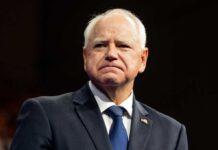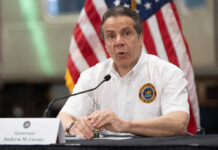
Senate Democrats accuse Attorney General Pam Bondi of undermining press freedom with her rollback of Biden-era protections, reigniting a fierce debate over government transparency and journalistic independence.
At a Glance
- Ten Senate Democrats challenge Attorney General Pam Bondi’s rollback of journalist subpoena protections.
- Bondi rescinded 2021 Biden-era rules limiting DOJ subpoenas to cases of imminent harm or death.
- Senators argue the new policy threatens investigative journalism and whistleblower protections.
- Bondi defends the change, citing abuse of prior rules through politically motivated leaks.
- Critics warn of chilling effects on media freedom and public access to truthful reporting.
Senate Letter Calls Out ‘Betrayal’ of Press Pledge
In a pointed May 7 letter, ten Democratic senators rebuked Attorney General Pam Bondi for reversing protections designed to shield journalists from federal subpoenas. The rescinded 2021 Biden-era rules required DOJ approval for compelling journalists to reveal sources, and only in cases involving imminent harm.
“When asked at your confirmation hearing to commit to ‘respect the importance of a free press,’ you said ‘absolutely,’” the senators wrote. “Yet your decision… threatens the ability of journalists to fully perform their critical jobs, as guaranteed by the First Amendment.”
The rollback has triggered alarm among media advocates, who argue that lowering the subpoena threshold risks silencing sources and deterring crucial investigative reporting.
Bondi’s Justification: Curb Strategic Leaks
Bondi maintains the revision is a necessary corrective to what she described as a pattern of calculated information leaks under previous administrations. Her memorandum claims Biden-era officials “weaponized their government positions” by leaking selectively to sympathetic media outlets to shape public narratives.
“The Biden administration also abused [former Attorney General Merrick] Garland’s overly broad procedural protections,” Bondi wrote, referencing “failed lawfare campaigns” supported by media leaks. She insists the revised rules will “reintroduce accountability” and reduce misuse of classified information.
Transparency vs. Control
While Bondi’s defenders argue the new policy prioritizes national security and deters manipulation, critics view it as a dangerous regression in press freedom. With White House visitor logs and select declassified documents published under transparency initiatives, observers suggest these moves are cosmetic compared to what Bondi’s rule change potentially restricts.
Past administrations, including Obama’s, have faced similar backlash over press surveillance—prompting some critics to note that the Democrats’ current outrage omits their own history of silent complicity.
With no video statement yet issued and media groups mobilizing responses, this dispute underscores a broader philosophical divide: whether safeguarding press freedom requires ironclad protection from government intrusion, or whether those protections are themselves vulnerable to political abuse.
Bondi’s policy will likely face legal scrutiny and sustained public debate, with long-term consequences for the fragile relationship between journalism, whistleblowers, and state power.





























